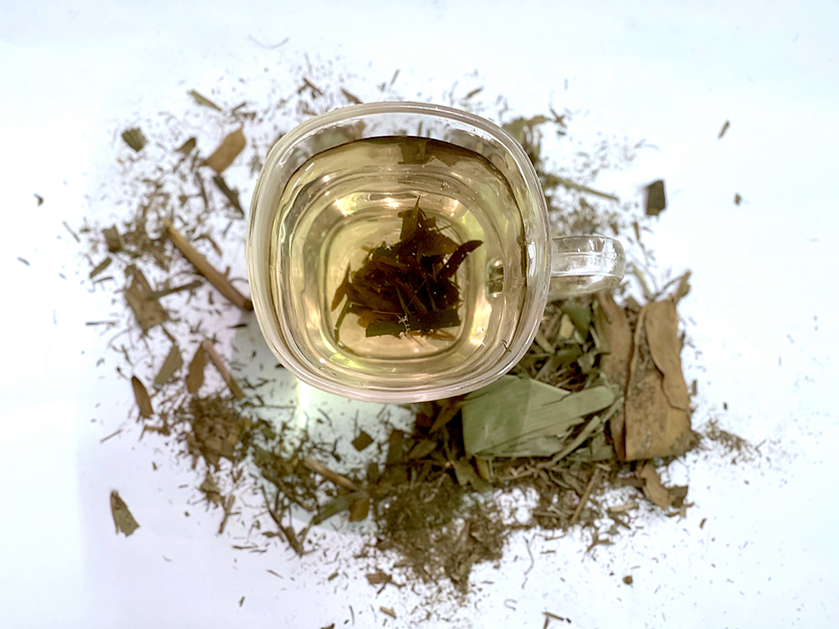
Harnessing the Healing Power of Bamboo: A Dive into Ayurveda and Traditional Medicine
Share
Bamboo, often admired for its versatility and strength, holds a special place in traditional medicine, particularly in Ayurveda and Southeast Asian healing practices. In Ayurveda, bamboo is referred to as Vanshalochana, and its unique properties make it a valuable ingredient in addressing various health concerns. Let's explore the wealth of therapeutic benefits that bamboo offers, from skin improvement to its role in treating complex conditions.
Ayurvedic Perspective:
In Ayurveda, bamboo is recognized for its Kapha-Pitta balancing property, which contributes to enhancing skin quality. Vanshlochan, the secretion from bamboo nodes, is traditionally used in Ayurvedic medicine to address inflammatory conditions and paralytic complaints. Bamboo leaves, packed with essential vitamins and minerals, play a pivotal role in promoting collagen production, detoxifying the body, and bolstering natural immunity.
Nutrient-Rich Bamboo:
Bamboo is a nutritional powerhouse, containing vital nutrients such as niacin, vitamin A, vitamin B6, and vitamin E. These elements not only contribute to overall health but also support specific functions like collagen synthesis. This natural enhancement of collagen production can lead to improved skin elasticity and vitality.
Traditional Chinese Medicine Insights:
In traditional Chinese medicine, bamboo leaves have been employed for over a millennium to treat various ailments. These leaves are recognized for their effectiveness in addressing conditions such as atherosclerosis, diabetes, hepatic issues, nervous system disorders, hypertension, arteriosclerosis, cardiovascular diseases, and certain forms of cancer.
Therapeutic Properties of Bamboo Leaves:
Bamboo leaves boast a spectrum of therapeutic properties that make them a valuable addition to herbal remedies. Some of these properties include:
- Anti-oxidation: Bamboo leaves exhibit strong anti-oxidative properties, helping combat oxidative stress in the body.
- Free Radical Scavenging: The leaves are effective in scavenging free radicals, contributing to cellular health and longevity.
- Anti-inflammatory: Bamboo leaves can help alleviate inflammation, making them beneficial for conditions involving inflammation.
- Liver Protection: Studies suggest that bamboo leaves contribute to liver protection, potentially reducing the risk of hepatic disorders.
- Cognitive Function Improvement: Bamboo leaves are believed to ameliorate cognitive deficits, offering potential benefits for brain health.
- Antimicrobial and Anthelmintic: Bamboo leaves exhibit antimicrobial properties, helping combat various infections. They also demonstrate anthelmintic effects, aiding in the expulsion of intestinal parasites.
- Anti-diabetic: Bamboo leaves may play a role in managing diabetes, potentially contributing to blood sugar regulation.
- Anti-ulcer: The leaves have properties that may assist in preventing and healing ulcers.
- Blood Pressure Regulation: Bamboo leaves are naturally rich in potassium, a mineral known for its ability to lower high blood pressure. Incorporating bamboo-based remedies into one's routine may contribute to the maintenance of cardiovascular health.
As we delve into the world of Ayurveda and traditional medicine, it becomes evident that bamboo is more than just a sturdy plant. Its leaves, extracts, and secretions offer a myriad of therapeutic benefits, ranging from skin enhancement to the treatment of complex health conditions. Embracing the wisdom of ancient healing traditions, bamboo stands tall as a symbol of holistic well-being. Consider exploring bamboo-based remedies to unlock the full potential of this remarkable natural resource.
To know more about the benefits of our patent-pending bamboo tea click here.
Click here to buy BeYouTea - The Bamboo Leaves Tea.
